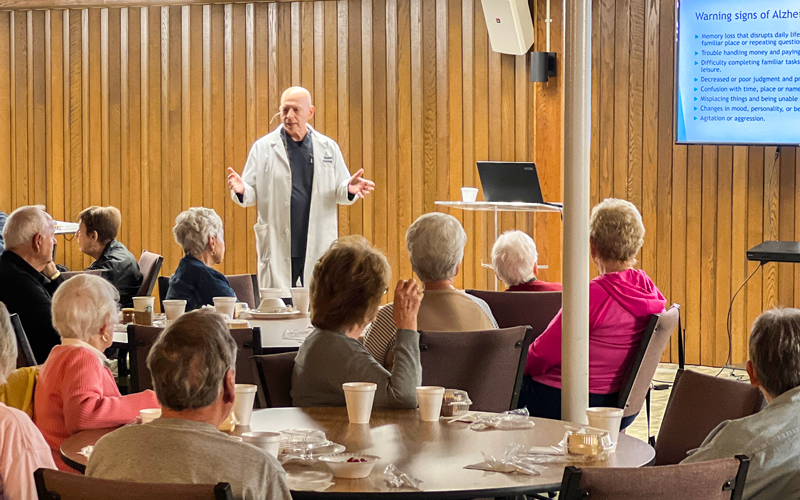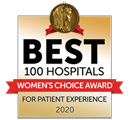During the October 11th Lunch and Learn presentation, William Buckett, PA of Advanced Sleep and Neurodiagnostic Services explained the most common form of dementia - Alzheimer's Disease. It is a type of dementia that results in mild memory loss, which in most cases leads to complete memory loss or the inability to perform daily activities. The parts of the brain that control thought, memory, and language are affected by this disease.
Here is a summary of the presentation:
The risk factors that increase the susceptibility of developing Alzheimer's disease include age, family history, and lifestyle choices such as smoking, diet, and exercise.
Alzheimer's disease has several warning signs, which include memory loss that disrupts daily life, difficulty handling money and paying bills, trouble with familiar tasks, poor judgment and problem-solving skills, confusion about time, place or names of objects, misplacing things, and changes in mood, personality, or behavior.
Although Alzheimer's disease can affect young adults, it is more commonly found in adults aged 65 years or older. An estimated 1 in 14 people over the age of 65 and 1 in every 6 people over the age of 80 are affected by this disease.
It is scientifically unknown why, but many people with Alzheimer's experience changes in their sleep patterns such as difficulty sleeping or napping more frequently during the day. In the late afternoon or early evening, people with Alzheimer's may become restless or agitated, referred to as "sundowning." In late stages of Alzheimer's, individuals spend about 40 percent of their time in bed at night awake and a significant part of their daytime sleeping.
Sleep apnea is also associated with Alzheimer's disease.
While there is no cure for Alzheimer's disease, medications, maintaining a routine, good health (diet and exercise), brain-stimulating activities, good sleep habits, and a good support system can improve the symptoms.
Tips for Alzheimer's Prevention:
- Exercise at least 30 minutes per day or 5 times a week
- Sleep 7-8 hours nightly (or in a 24-hour period). Maintain a well-balanced sleep routine. Make sure to go to bed and wake up at the same time.
- Eating a Mediterranean diet is healthy for the brain. Learn more here.
- Listen to music daily for at least 30 minutes.
- Eat berries
- Make sure to follow up with your primary care provider every 3 months.
- When feeling stressed, be sure to talk to someone about your feelings.
- Make sure to have social interaction as often as possible.
- Drink 1-2 cups of coffee or hot tea daily.
- Take Vitamin D, B Complex, and Omega 3 supplements daily.
- Try turmeric in foods or take it as a supplement.
Alzheimer's disease is the 6th leading cause of death among US adults and the 5th leading cause of death among adults aged 65 years or older. In 2020, an estimated 5.8 million Americans aged 65 years or older had Alzheimer's disease. This number is projected to nearly triple to 14 million people by 2060. In 2010, the costs of treating Alzheimer's disease were projected to fall between $159 and $215 billion. By 2040, these costs are projected to jump to between $379 and more than $500 billion annually.
Get more information at the Alzheimer's Association Website.
Sources
Centers for Disease Control and Prevention. (2020, October 26). What is alzheimer’s disease? Centers for Disease Control and Prevention. https://www.cdc.gov/aging/aginginfo/alzheimers.htm#:~:text=Alzheimer’s%20disease%20is%20the%20most,thought%2C%20memory%2C%20and%20language.
Treatments for sleep changes. Alzheimer’s Disease and Dementia. (2023). https://www.alz.org/alzheimers-dementia/treatments/for-sleep-changes
Mayo Foundation for Medical Education and Research. (2023, August 30). Alzheimer’s disease. Mayo Clinic. https://www.mayoclinic.org/diseases-conditions/alzheimers-disease/symptoms-causes/syc-20350447





